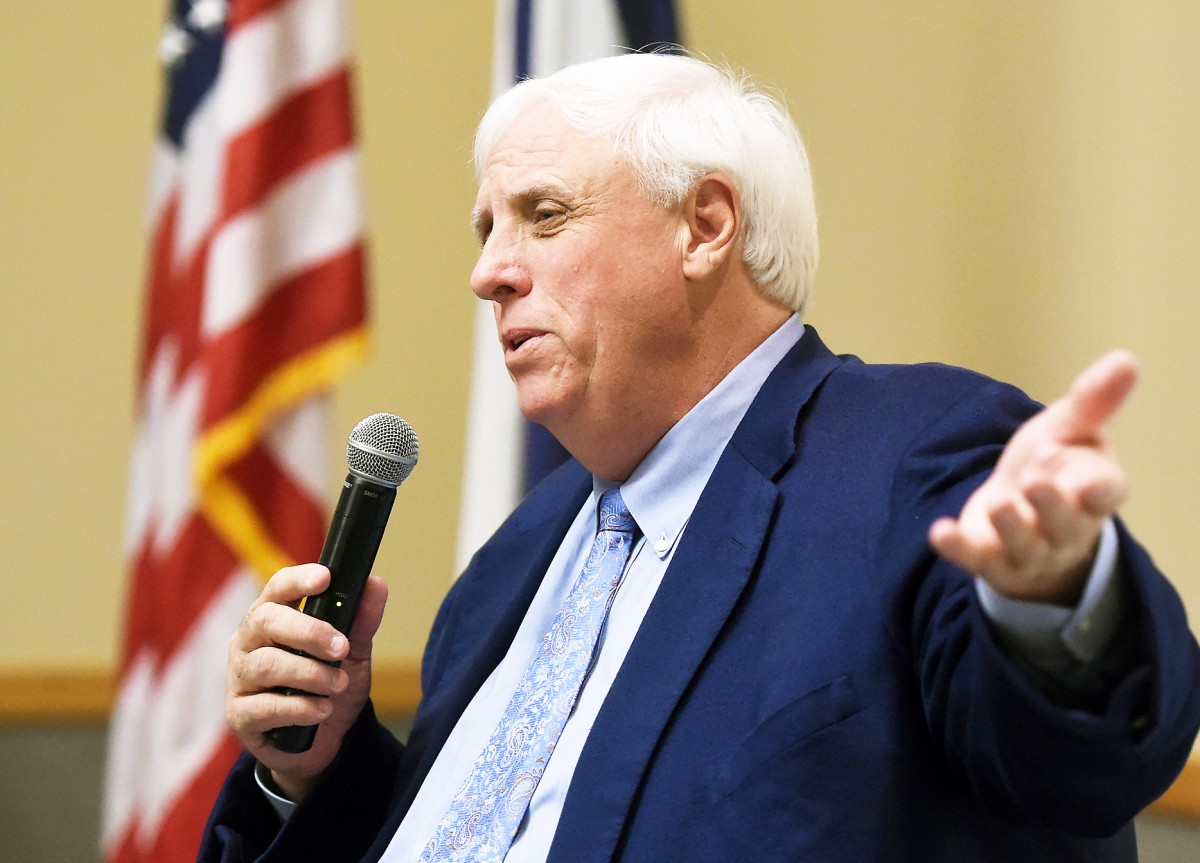CHARLESTON — A U.S. attorney for Southern West Virginia said it’s unclear whether a company owned by Gov. Jim Justice has enough money to pay $1.23 million in court-ordered sanctions.
U.S. Attorney Mike Stuart made the statement as part of a Dec. 21 filing in U.S. District Court. S&P Global first reported on the filing.
Stuart wrote that his office had asked for financial information from Justice Energy Company, which had not yet satisfied a civil contempt sanction imposed by the court.
The filing included a Nov. 28 letter from Stuart to lawyers representing Justice Energy Company.
“Based on my conversation with you, as counsel for Justice Energy Company, Inc., there was some suggestion that Justice Energy Company, Inc., may not have the financial resources to pay the sanctions imposed by the court,” Stuart wrote.
The latest filing includes a request to depose employees and representatives of Justice Energy.
Stuart also requests the court’s permission to “discover and compel the production of financial information so that the United States can proceed to find and locate potential financial assets.”
This is one of multiple lawsuits against the governor and his family businesses indicating financial pressures over longstanding debt.
For example, in a separate ongoing case, a U.S. marshal was authorized to collect $1,022,380.01 from James. C. Justice Companies, Southern Coal Corporation and Kentucky Fuel Corporation.
The marshal was tasked with checking multiple banks holding Justice funds to see if any money is available.
That was one of several cases, public broadcasting has reported, in which companies owned by Justice refused or failed to pay even after being compelled in the court system.
When Justice became governor in 2017, he placed responsibility of his business operations with his grown children. The officers of Justice Energy are son Jay and daughter Jill.
But governor Justice’s financial disclosure form with the state Ethics Commission has continued to list ownership in dozens of companies, including Justice Energy.
The filing this month in federal court brings together U.S. Attorney Stuart with businesses still owned in part by Governor Justice.
Stuart and Justice appeared together three weeks ago during a press conference in Huntington to boost drug recovery efforts.
Justice picked up a microphone and paid compliment to Stuart, who stood close by.
“Absolutely, he’s our U.S. Attorney for Southern West Virginia, and this is a good man, a really good man,” the governor said.
The federal government’s efforts to collect on the $1.23 million contempt sanction date back to a case first filed Nov. 6, 2013.
This was at a time when the company was still owned by the Russian Energy company Mechel OAO. Justice had sold to Mechel in May 2009 and then bought it back in 2015.
A federal lawsuit filed by James River Equipment alleged that Justice Energy failed to pay for parts, equipment and service.
At the time, all that was owed was $148,496.14.
On Jan. 21, 2014, the court granted James River’s motion for default and awarded $156,112, an amount that included damages.
But Justice Energy failed to pay and its representatives failed to appear at a series of hearings.
At a debtor’s examination that year, the then-vice president of finance for Justice Energy, Vladislav Andreev, did appear, although filings note that he failed to bring any documents along.
Andreev testified that he was paid by Bluestone Industries, that he was an officer of Justice Energy, as well as an officer of 10 more affiliated entities.
“He also testified that at the time of the hearing, Justice Energy had ‘zero assets’ in their bank account, as money was deposited in their account at J.P. Morgan Chase before each payroll by a corporate affiliate.”
As the struggle continued for James River to receive the $156,112 judgment, the company in late 2015 filed a motion for contempt.
That motion also included a request to “pierce the corporate veil” of Justice Energy and to imprison its corporate officers and directors until the payment was made.
U.S. District Judge Irene Berger declined to go that far.
“The court notes that piercing any corporate veil is an extraordinary remedy, and unnecessary at this point to achieve the plaintiff’s intended results in this case,” Berger wrote in a Jan. 5, 2016, order.
But the judge did grant the contempt motion and ordered Justice Energy to be fined $30,000 a day until it could demonstrate compliance with the earlier order.
By Feb. 26, 2016, as Justice was warming up for the Democratic primary race for governor, the situation had barely improved.
But the two parties had worked out a payment plan, and Berger agreed.
She ordered the judgment of $1,230,000, representing the total amount of the sanction from her earlier order.
Berger also ordered regular status updates.
Those status updates have continued, with no indication the debt is any closer to being paid.
For a while, attorneys for Justice Energy cited a federal appeal as the reason. But that appeal was rejected July 11, 2017. A second attempt at a federal appeal also failed.
This Dec. 7, Berger ordered both sides to submit a status report within 15 days.
Lawyers for Justice Energy wrote in their own Dec. 21 filing, “Defendant is in the process of examining available funds and assets and gathering information to provide to the U.S. Attorney’s Office in that regard.”




